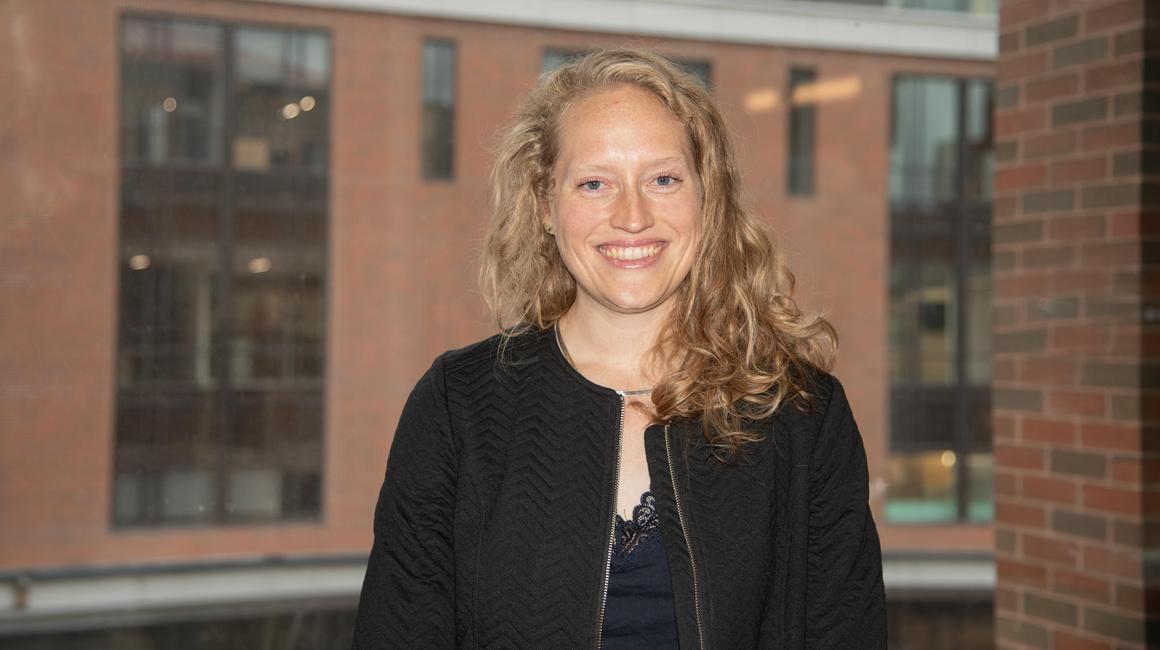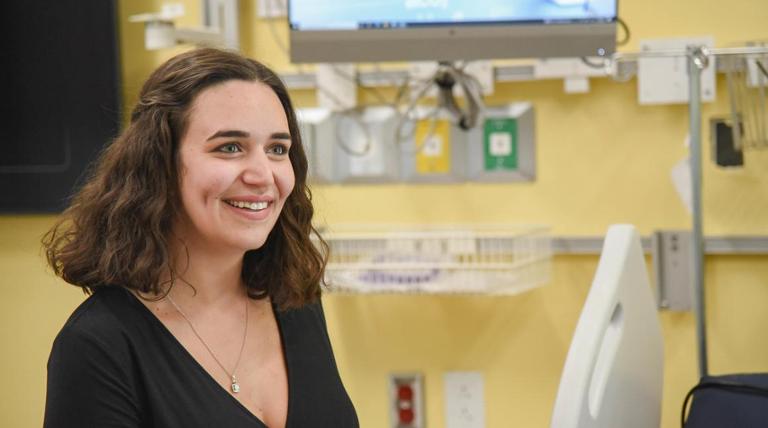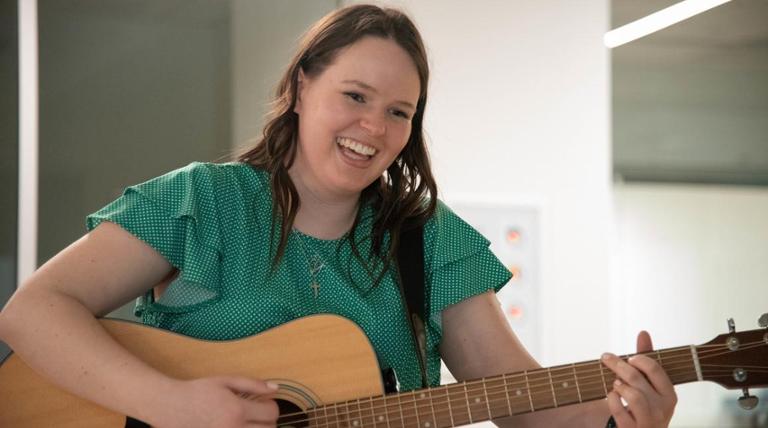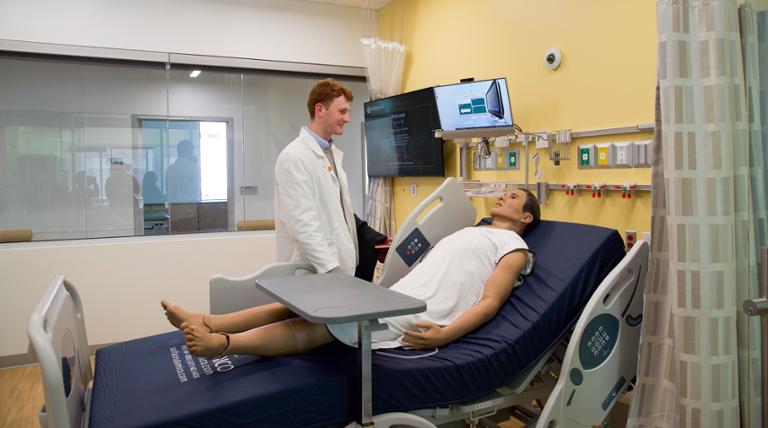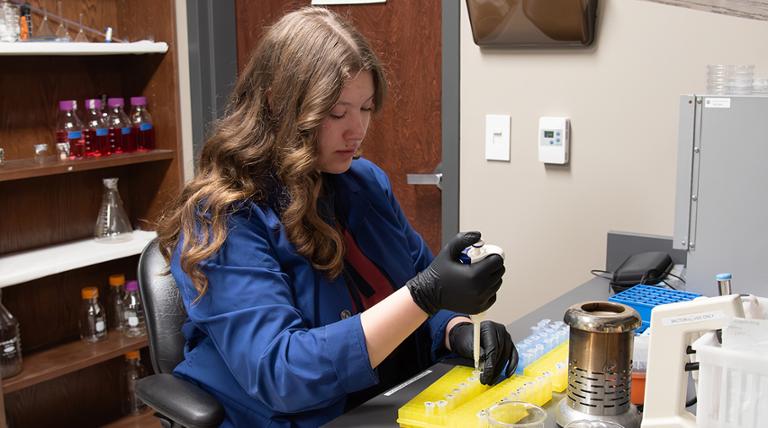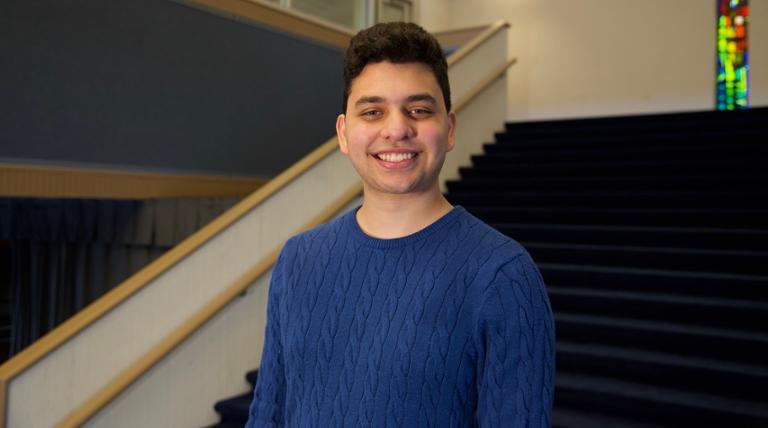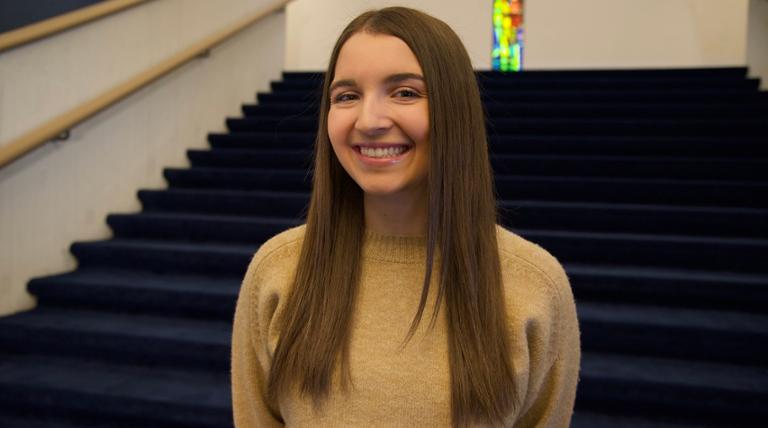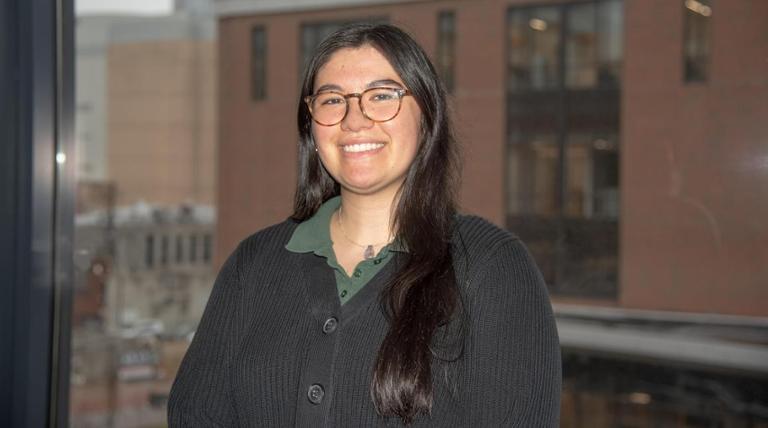Kirstin Franklin knows she’s doing challenging, important work.
As a fourth-year doctoral student in Duquesne’s school psychology program, she also
knows that collaboration can go a long way to help children succeed in the classroom.
This is one of the many lessons she’s learned through her studies in the School of
Education and her field experience on the sickle cell team at UPMC Children’s Hospital
of Pittsburgh.
When a child has sickle cell, fatigue and pain can affect their ability to concentrate
in school. They are also absent more frequently than other children due to medical
appointments or recurrent pain.
“I do cognitive testing and write reports to advocate for children in their schools,”
Kirstin says. “You see a lot of executive functioning disorder in students with sickle
cell. Informing teachers to look for organizational deficits or monitoring other deficits
is so important so these students don’t fall behind.”
Originally from Colorado, Kirstin fell in love with Pittsburgh when she served in
AmeriCorps for a
year after college graduation. A few years later, her affection for the city and an
interest in Duquesne’s school psychology doctoral program brought her onto the Bluff
to pursue bigger goals.
Driven by compassion and empathy, Kirstin has connected with other fields and used
her talents to become a problem-solver who motivates others to make an impact.
“Throughout my career I want to bridge the gap between school systems and kids with
chronic illness,” she says. “To do this, it’s important to bridge the gap between
medical providers and a child’s school.”
Kirstin enjoys working with health care partners to ensure the best outcomes for children.
“A school psychologist has insight into how the student learns,” she says. “The medical
team has insight into what medications may help the child learn or what other interventions
we can set up. Having that knowledge and teamwork is the ideal scenario.”
At the School of Education, Kirstin is grateful for faculty who provide mentorship
and lead vibrant discussions. They model skills that have shown her how to make enduring
connections with others and provide the well-rounded training that her future profession
demands.
She’s equally grateful that Duquesne is located in “a health care city” and encourages
other school psychology students to take advantage of the many learning opportunities
at Pittsburgh-area hospitals and private practices. These types of experiences connect
life-changing people to a professional path with purpose.
Kirstin is excited that the new Duquesne University College of Osteopathic Medicine
will offer her and her classmates new opportunities to learn.
“The new college will allow school psychology students to interact with medical students
and learn how those teams work, while medical students get to learn how school systems
work,” says Kirstin. “It’s important to have these multidisciplinary teams working
together so their patients – our students – can benefit.”
Post-graduation, Kirstin looks forward to working as a school psychologist and ensuring
that all children have the opportunity to learn.
“When a school understands a child’s needs it can bring in the right services, provide
more empathy toward the student and give the best chance for success, even if there
are limitations due to chronic illness,” says Kirstin.
News Information
New Medical School, Fresh Perspectives
Students from across campus will connect in meaningful, productive ways.


